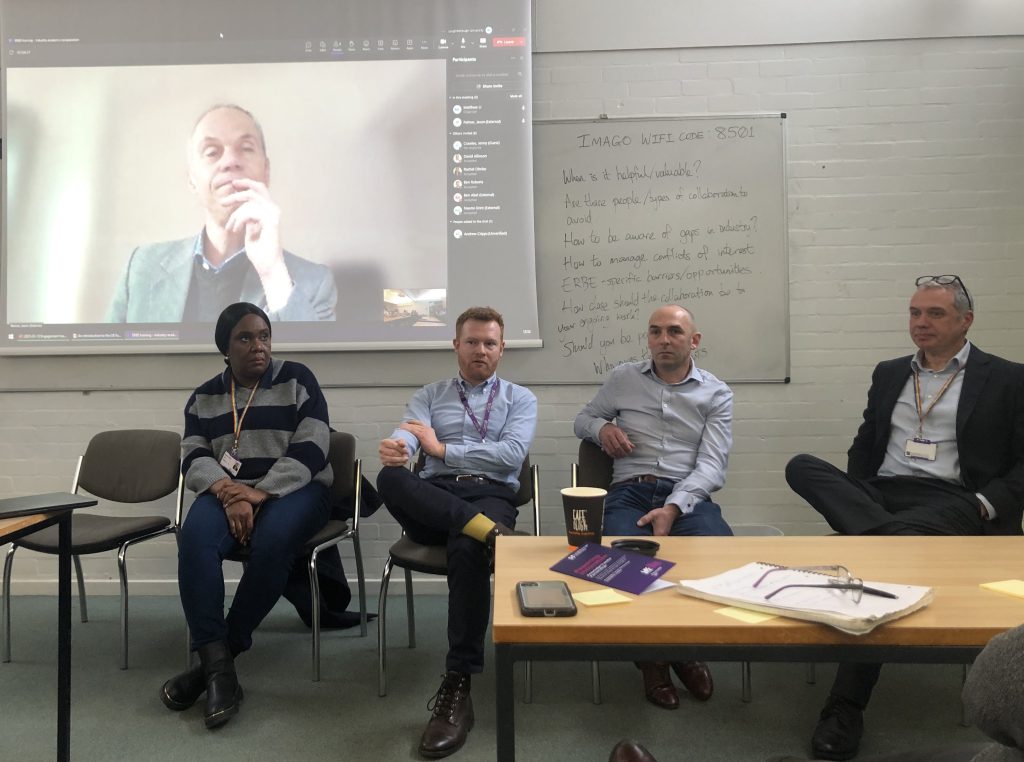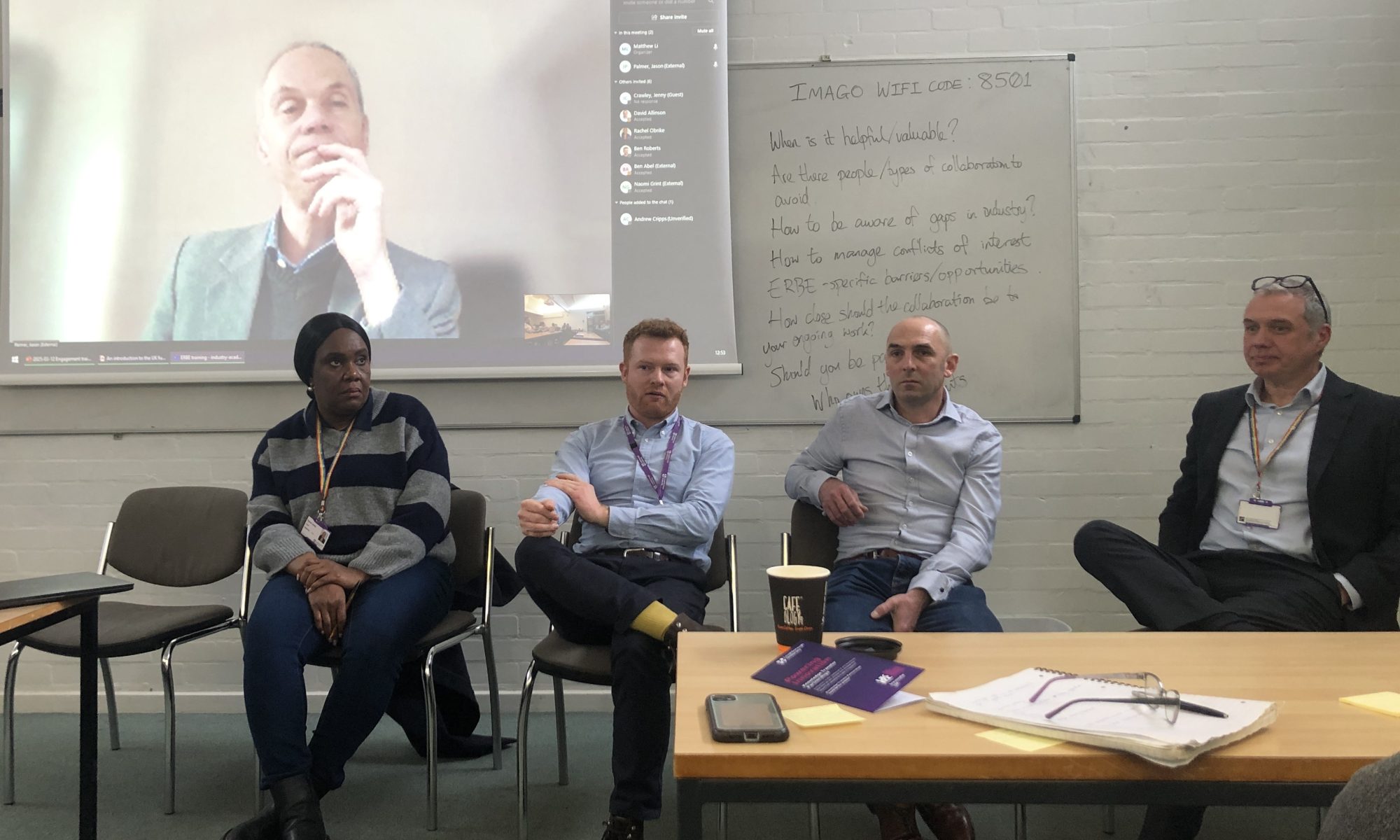Loughborough and UCL ERBE students had a useful session together on 12th March 2025, thinking about collaboration between industry and academia and how this can lead to impactful work for academics and viable commercial outcomes for businesses.
For PhD students and academics there are several different ways of working with industry, including Knowledge Transfer Partnerships, bidding for projects together, having an industrial supervisor on a student project, or simply disseminating results in forums like the CIBSE journal and Technical Symposium where industry will hear about them.

We were very fortunate to have 9 speakers from academia and industry all with experience of collaboration of some kind.
Some general messages that came out were:
- Industry collaboration can be very useful to academics for: publishing with a greater reach, and getting experience of how concepts we use in our work are implemented in the real world. Also, government clients can be sceptical that universities will deliver projects on time, so collaborations which are project managed by industry are seen as more likely to deliver timely results.
- Academic collaboration can be very useful to industry for: credibility of claims (through both rigorous work and the independent stance taken by universities), access to datasets, access to state of the art methods and algorithms, and being able to talk with authority to clients.
- It can be therefore valuable to collaborate where there are clear benefits to both parties (i.e. in win-win situations), where the collaboration is clearly defined, and where trust exists. We heard many examples of where academic input led to commercialised products in the heating controls and building energy demand reduction areas. We also heard examples of students who gained contacts through industry partnerships which led them to be able to heavily influence technical standards.
- There is support available to those interested in collaborating. All universities have partnerships managers, and Innovate UK provide support.
- It is good to get out there and to talk to as many people outside of academia as possible, even though not every conversation will lead to a collaboration. This will also help know what are the problems industry are facing which academic research can help with.
- “Keep it real” – a message came through that in industry people like seeing how things work in real situations, so students should make sure their work applies to these.
For students without existing industry partnerships, our speakers recommended several ways to meet people and have real world impact:
- Attend relevant industry events and publish where it will be read by people in industry, e.g. the CIBSE Journal
- Make contacts who can help you influence or change standards, e.g. a British Standard, a European Standard, or a Building Regulation
- Attend working groups within trade bodies (e.g. The ADE) to find out the current problems faced by industry
- Organise an academia-industry research exchange yourself (ERBE can help you with funding for this)
- Produce and disseminate short videos on your results
We look forward to seeing the impact that our ERBE students’ research will make, and we are very grateful to our speakers:
- Prof David Allinson (Professor of Building Physics @ LU)
- Dr Jason Palmer (Director @ Cambridge Energy & Cambridge Architectural Research; Senior Research Fellow @ Bartlett School UCL)
- Dr Rachel Obrike (Innovation Funding Manager & Innovate UK Programme Manager @ LU)
- Dr Ben Roberts (Lecturer in Building Energy @ LU)
- Ben Abel (Director & Head of R&D @ Hilson Moran)
- Naomi Grint (Passivhaus certifier @ Etude)

